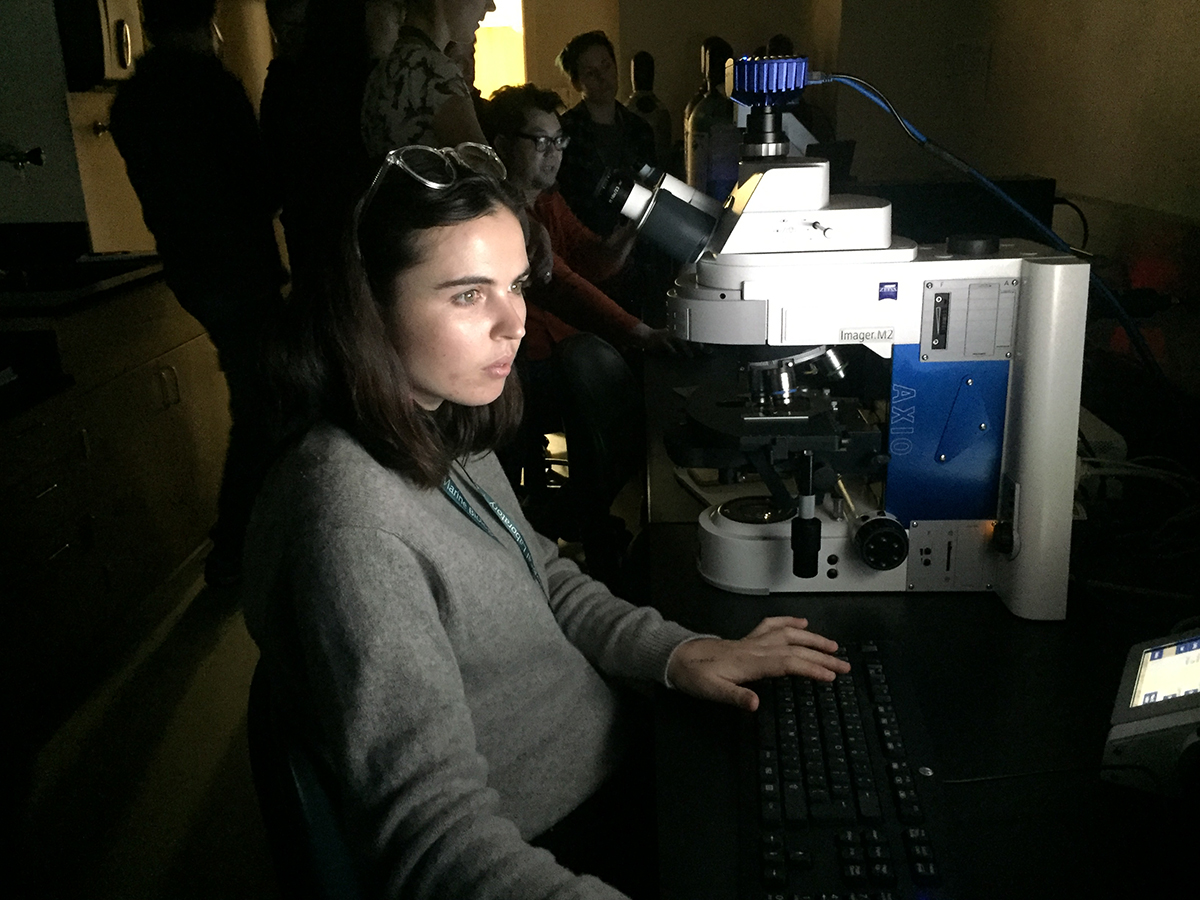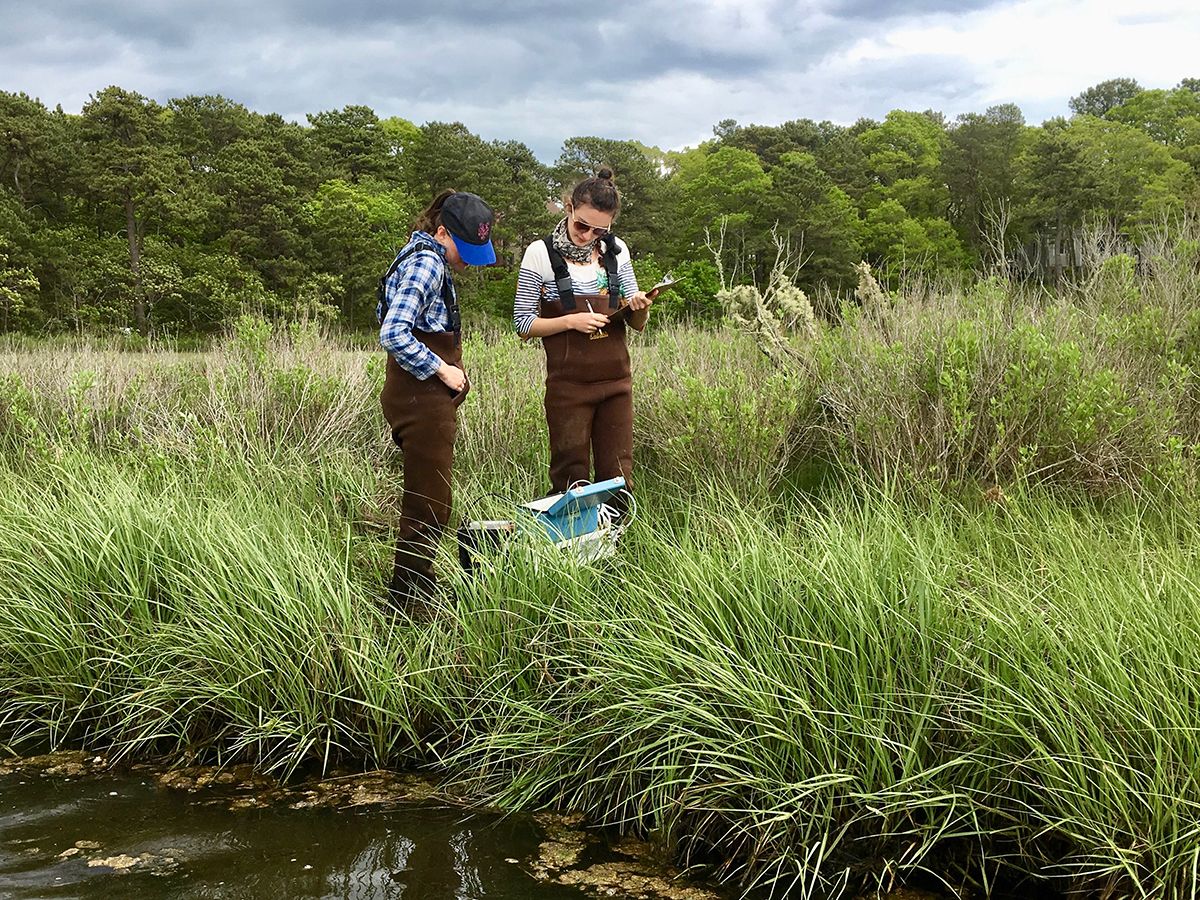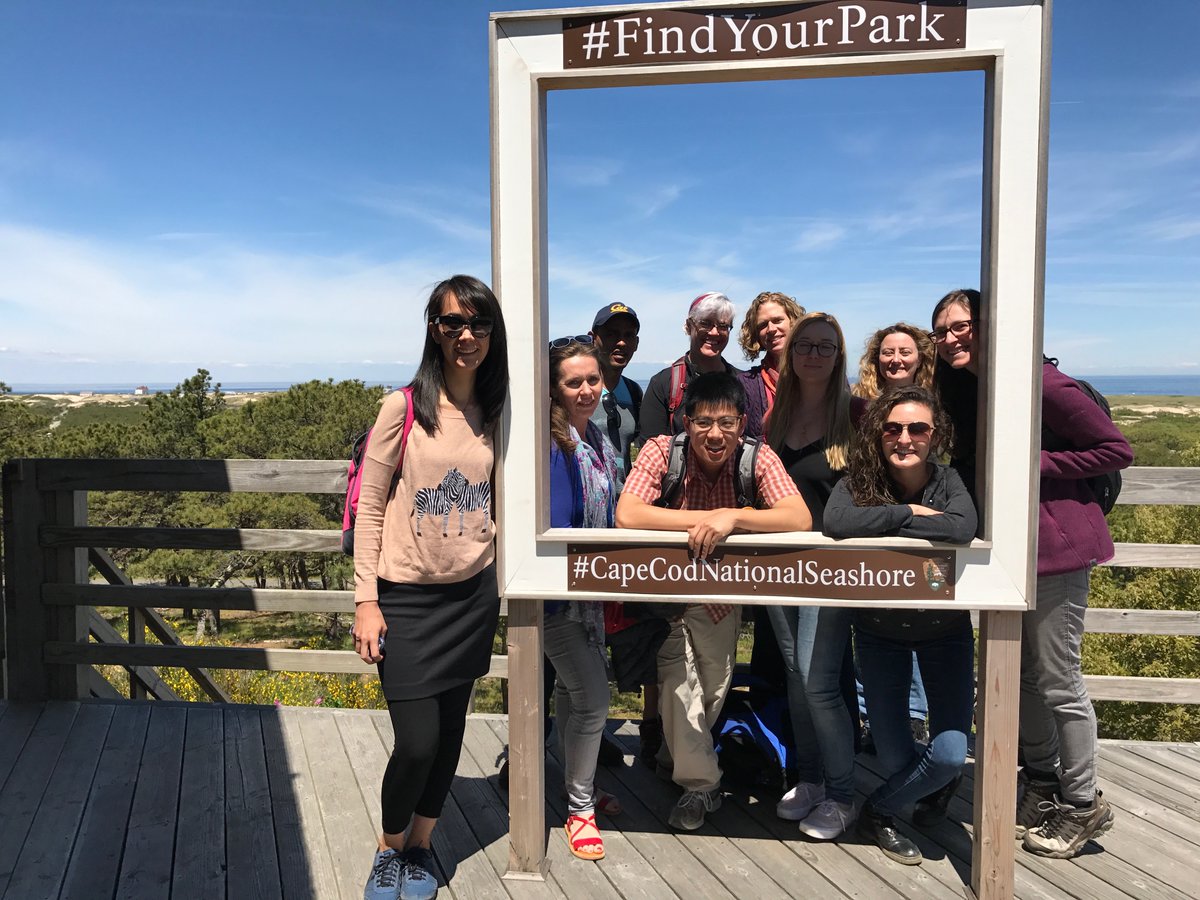Twelve Journalists Awarded Fellowships in the MBL Logan Science Journalism Program

Contact: Diana Kenney 508-289-7139; dkenney@mbl.edu
WOODS HOLE, Mass. – The MBL looks forward to the arrival in May of 12 accomplished journalists who have been awarded a competitive fellowship in the MBL Logan Science Journalism Program.
 Biomedical Fellow Olivia Willis of Australian Broadcasting Corp. training in microscopy and imaging. Credit: Maryn McKenna
Biomedical Fellow Olivia Willis of Australian Broadcasting Corp. training in microscopy and imaging. Credit: Maryn McKennaNow in its 34th year, the Logan Science Journalism Program provides health and science journalists with immersive, hands-on research training, giving them invaluable insight into the practice of science as well as some of the major news stories of today. The program, which offers a Biomedical course and an Environmental course, will run May 27-June 4 in Woods Hole.
Biographies for the 2021 Logan Science Journalism Program Fellows are here. Some of the fellows were accepted in 2020, while others are new awardees this year. They are:
Biomedical Fellows
James Dinneen, Freelance Journalist (based in New York City)
Dan Drollette, Jr., Deputy Editor, Bulletin of the Atomic Scientists
Molly Enking, Weekend Digital Editor/Producer, PBS NewsHour Weekend
Alexa Kurzius, Managing Editor, Newsela
 Environmental Fellows Sarah Kaplan of The Washington Post and María Mónica Monsalve of El Espectador field sampling in Woods Hole. Credit: Craig LeMoult
Environmental Fellows Sarah Kaplan of The Washington Post and María Mónica Monsalve of El Espectador field sampling in Woods Hole. Credit: Craig LeMoultMatt Reynolds, Science Editor, WIRED UK (London, UK)
Cathy Shufro, Freelance Journalist (New Haven, Conn.
Environmental Fellows
Kyle Bagenstose, Investigative Reporter, Gannett/USA Today Network (Philadelphia, Penn.)
Frederick Bever, Reporter/Producer, Maine Public Radio/New England News Collaborative
Katy Daigle, Climate Change Editor, Reuters
Tatiana Pardo Ibarra, Freelance Journalist (Bogotá, Colombia)
Andres Pruna, Producer/Editor, Univision KMEX (Los Angeles, Calif.)
Miriam Wasser, Environmental Reporter, WBUR-Boston
 The Fellows take a break from research to visit the Cape Cod National Seashore. Credit: Diana Kenney
The Fellows take a break from research to visit the Cape Cod National Seashore. Credit: Diana KenneyIn the Biomedical Hands-On Research Course, fellows learn the fundamental techniques and approaches that underpin current biomedical science. In 2021, they will focus on cutting-edge technologies for imaging and analyzing the human microbiome; genome editing using CRISPR/Cas9; and DNA sequencing and analysis. They will also have ample opportunity to discuss concepts and innovations in biological and biomedical science with the program’s scientific faculty.
In the Environmental Hands-On Research Course, fellows undertake field research at a barrier beach, salt marsh and watershed ecosystem on Cape Cod. They discover the complex ways that added nitrogen alters coastal ecosystems, including their capacity to keep up with sea-level rise and impacts on marine life and coastal food webs.
All fellows collect, analyze, and interpret research data, which they present at a mini-symposium at the close of the fellowship. They also have opportunities to explore the rich scientific resources in Woods Hole.
The Biomedical Hands-On Research Course is co-directed by Jessica Mark Welch, Ph.D., associate scientist in the MBL’s Bay Paul Center, and Joshua Rosenthal, Ph.D., senior scientist in the MBL's Bell Center for Regenerative Biology and Tissue Engineering. The course’s journalism advisor is Maryn McKenna, an independent science journalist, author, and Senior Fellow of the Center for the Study of Human Health at Emory University.
The Environmental Hands-On Research Course is directed by Anne Giblin, Ph.D., senior scientist and director of the MBL Ecosystems Center. Science journalist/producer Angela Posada-Swafford is the course’s journalism advisor.
Over the years, the Logan Science Journalism Program has granted fellowships to hundreds of journalists from prominent news organizations, including The New York Times, The Wall Street Journal, Science, National Public Radio, The Washington Post, USA Today, CNN, and Scientific American.
—###—
The Marine Biological Laboratory (MBL) is dedicated to scientific discovery – exploring fundamental biology, understanding marine biodiversity and the environment, and informing the human condition through research and education. Founded in Woods Hole, Massachusetts in 1888, the MBL is a private, nonprofit institution and an affiliate of the University of Chicago.
The Logan Science Journalism Program is sponsored by: George & Helen H.B. Logan; Friends and Alumni of the Science Journalism Program; Golden Family Foundation; Howard Hughes Medical Institute; Irving Weinstein Foundation, Inc.; Ross Foundation; and the Byron H. Waksman Fund for Excellence in Science Communication.